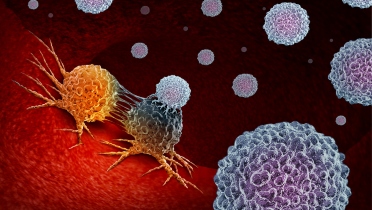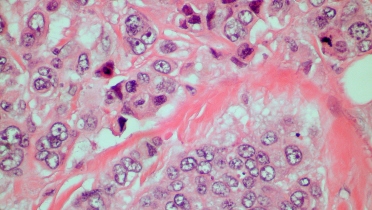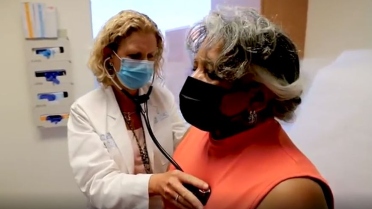Oral Paclitaxel-Encequidar Superior to IV Paclitaxel in Metastatic Breast Cancer
Adding encequidar to oral paclitaxel increases tumor response compared with IV paclitaxel alone in patients with metastatic breast cancer, according to a new investigation in Journal of Clinical Oncology.
While patients who received encequidar plus oral paclitaxel also demonstrated trends in improvement in both progression-free survival and overall survival, combination therapy was also marked with increased gastrointestinal toxicity.
To help compare the novel combination with IV paclitaxel alone, the researchers enrolled 402 postmenopausal adult women with metastatic breast cancer into the open-label phase-3 study.
A total of 265 patients received 205 mg/m2 paclitaxel plus 15 mg encequidar methanesulfonate monohydrate 3 consecutive days per week. The remaining 137 participants received IV paclitaxel 75 mg/m2 once every 3 weeks.
According to principal investigator Hope S. Rugo, MD, of the Helen Diller Family Comprehensive Cancer Center at the University of California San Francisco, the confirmed tumor response rate was 36% among patients who underwent combination therapy, significantly better than the 23% among those treated with IV paclitaxel (P = .01).
Tumor response was generally consistent in clinically important subgroups and tended to favor combination therapy by at least 10%.
PFS and OS were both superior among encequidar-paclitaxel patients. Specifically, PFS was 8.4 months and 7.4 months in the two groups (HR = 0.768; P = .046), respectively, while OS was 22.7 months in combination therapy patients and 16.5 months in IV paclitaxel patients (HR = 0.794; P = .08).
Safety analyses revealed that the safety profile of encequidar plus paclitaxel was largely consistent with the known toxicity profile of IV paclitaxel.
“In conclusion, oral administration of oral paclitaxel plus encequidar achieved higher confirmed tumor response rates in patients with metastatic breast cancer compared with 3 weekly IV paclitaxel, supported by trends in PFS and OS,” Hope S. Rugo, MD, of the Helen Diller Family Comprehensive Cancer Center at the University of California San Francisco.
Further studies to optimize dosing in patients with hepatic dysfunction are warranted, they added.
--
Reference:
https://ascopubs.org/doi/full/10.1200/JCO.21.02953?bid=188486727&cid=DM11130
Disclosures: Authors declared financial ties to drugmakers. See full study for details. The study was supported by Athenex, Inc.
Photo Credit: Getty Images.
By Michael Vlessides, MD /alert Contributor
.jpg)















.jpg)
.jpg)

.jpg)
.jpg)
.jpg)
.jpg)
.jpg)


.jpg)
.jpg)
.jpg)
.jpg)

.jpg)
.jpg)

.jpg)

.jpg)

.jpg)
.jpg)
.jpg)

.jpg)
.jpg)

.jpg)


.jpg)


.jpg)
.jpg)
.jpg)
.jpg)
.jpg)


.jpg)
.jpg)
.jpg)
.jpg)
.jpg)
.jpg)

.jpg)
.jpg)
.jpg)
.jpg)
.jpg)
.jpg)

.jpg)

.jpg)
.jpg)

.jpg)
.jpg)
.jpg)

.jpg)
.jpg)
.jpg)
.jpg)
_.jpg)
.jpg)
.jpg)
.jpg)

.jpg)
.jpg)

.jpg)
.jpg)
.jpg)
.jpg)
.jpg)



.jpg)
.jpg)


.jpg)
.jpg)

.jpg)

.jpg)
.jpg)
.jpg)

.jpg)
.jpg)
.jpg)

.jpg)
.jpg)

.jpg)
.jpg)
.jpg)
.jpg)
.jpg)
.jpg)
.jpg)
 Featured Breast Cancer Videos
Featured Breast Cancer Videos.jpg)